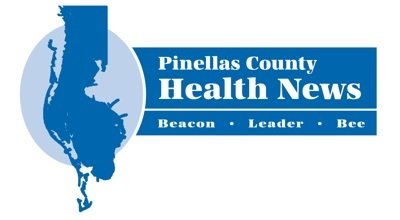
Pinellas County Health Department
The Pinellas County Health Department (PCHD) plays a critical role in safeguarding the health and well-being of the community it serves. Located in the vibrant and diverse region of Pinellas County, Florida, this department is committed to providing essential public health services, addressing community health challenges, and promoting healthy lifestyles among residents. This article delves into the various aspects of the Pinellas County Health Department, including its functions, the demands it faces, its target population, and the vital services it provides to improve public health.
What is the Pinellas County Health Department?
The Pinellas County Health Department is a governmental agency that operates under the Florida Department of Health. Established to protect and enhance the health of the residents of Pinellas County, the department offers a wide range of services designed to meet the needs of its diverse population. The department’s mission is to promote, protect, and improve the health of the community through education, prevention, and access to healthcare services.
Mission and Vision
The mission of the Pinellas County Health Department is to:
- Promote health and wellness through educational programs and community engagement.
- Prevent disease through immunizations, screenings, and health initiatives.
- Protect the community from health hazards by monitoring environmental health and safety.
The vision of the department is to create a healthy community where all residents have access to quality healthcare services, education, and resources that promote health equity and enhance the quality of life.
Organizational Structure
The Pinellas County Health Department is organized into several divisions, each focusing on different aspects of public health. These divisions include:
- Administration: Responsible for overall management and coordination of health services.
- Clinical Services: Offers direct medical services, including immunizations, family planning, and maternal and child health services.
- Environmental Health: Monitors environmental factors that affect public health, such as water quality, food safety, and waste management.
- Community Health Services: Focuses on health education, disease prevention, and outreach programs.
- Epidemiology: Conducts disease surveillance and research to track health trends and outbreaks.
Demand for Public Health Services
The demand for public health services has been steadily increasing in Pinellas County, driven by several factors:
1. Population Growth
Pinellas County has experienced significant population growth over the past few decades. As more people move to the area, the demand for health services increases. According to the U.S. Census Bureau, Pinellas County had a population of over 970,000 in 2020, making it one of the most populous counties in Florida. This growth places additional pressure on the health department to provide adequate services to meet the needs of a diverse population.
2. Aging Population
Like many regions in the United States, Pinellas County has an aging population. Older adults often require more healthcare services due to chronic conditions and age-related health issues. The health department must adapt its programs to address the unique needs of this demographic, including geriatric care, mental health services, and preventive health screenings.
3. Chronic Diseases
Chronic diseases such as diabetes, heart disease, and obesity are prevalent in Pinellas County. According to the Florida Department of Health, these conditions contribute to a significant portion of healthcare expenditures and can severely impact residents’ quality of life. The Pinellas County Health Department works to address these issues through health education, lifestyle intervention programs, and community partnerships aimed at reducing risk factors and promoting healthier living.
4. Health Disparities
Health disparities among different populations within Pinellas County highlight the need for targeted public health initiatives. Factors such as income, education, and access to healthcare significantly influence health outcomes. The Pinellas County Health Department is committed to addressing these disparities through targeted programs that reach underserved communities, ensuring that all residents have equal access to health services.
5. Epidemic Response and Preparedness
The COVID-19 pandemic underscored the importance of public health departments in managing health crises. The Pinellas County Health Department played a crucial role in responding to the pandemic by implementing vaccination campaigns, conducting contact tracing, and providing public health education. The experience gained during this time has increased the demand for preparedness and response services to future health emergencies.
Target World: The Community Served
The Pinellas County Health Department serves a diverse population with varying health needs. Understanding the community’s demographics is essential for developing effective public health strategies.
Demographics of Pinellas County
Pinellas County is home to a mix of urban and suburban communities, including cities like St. Petersburg, Clearwater, and Largo. The population includes:
- Age Distribution: A significant proportion of the population is over 65 years old, reflecting the county’s appeal to retirees. However, there is also a sizable population of young families and working-age adults.
- Cultural Diversity: The county boasts a diverse population, with residents from various cultural and ethnic backgrounds. This diversity requires culturally competent health services that address the unique needs and preferences of different groups.
- Economic Factors: Pinellas County has a diverse economy, with many residents working in tourism, healthcare, education, and technology sectors. However, income disparities exist, with some communities experiencing higher poverty rates, which can affect access to healthcare services.
Community Engagement
The Pinellas County Health Department emphasizes community engagement as a core component of its public health initiatives. By collaborating with local organizations, schools, and community leaders, the department can better understand the health needs of residents and develop programs that resonate with the community.
Health Education and Outreach
Health education and outreach are fundamental to the Pinellas County Health Department’s mission. The department employs various strategies to inform the community about health issues, preventive measures, and available services, including:
- Workshops and Seminars: Educational sessions on topics like nutrition, exercise, mental health, and chronic disease management.
- Health Fairs: Community events that provide free screenings, vaccinations, and health information to residents.
- Social Media and Online Resources: Utilizing digital platforms to disseminate health information, resources, and updates on public health initiatives.
Services Offered by the Pinellas County Health Department
The Pinellas County Health Department offers a comprehensive array of services aimed at promoting health, preventing disease, and addressing the community’s unique needs. Some of the key services include:
1. Clinical Services
The clinical services division provides a range of direct healthcare services, including:
- Immunizations: Routine vaccinations for children and adults, including flu shots and travel vaccines.
- Family Planning: Services such as birth control, pregnancy testing, and reproductive health education.
- Maternal and Child Health: Programs aimed at promoting healthy pregnancies, infant health, and early childhood development.
2. Environmental Health
The environmental health division focuses on ensuring a safe and healthy environment for residents. Key services include:
- Food Safety Inspections: Monitoring restaurants, grocery stores, and food vendors to ensure compliance with health regulations.
- Water Quality Monitoring: Testing drinking water and recreational waters to protect public health.
- Waste Management: Managing solid waste, hazardous waste, and sewage to prevent environmental contamination.
3. Epidemiology and Disease Control
The epidemiology division plays a critical role in monitoring and controlling diseases within the community. Services include:
- Disease Surveillance: Tracking outbreaks of infectious diseases and monitoring health trends.
- Contact Tracing: Identifying and notifying individuals who may have been exposed to communicable diseases, particularly during outbreaks.
- Public Health Investigations: Conducting investigations into disease outbreaks to determine sources and implement control measures.
4. Community Health Services
Community health services focus on health promotion and disease prevention through various initiatives:
- Chronic Disease Prevention: Programs aimed at reducing the prevalence of chronic diseases through lifestyle changes, screenings, and education.
- Mental Health Services: Providing resources and referrals for mental health support, counseling, and substance abuse treatment.
- Health Equity Initiatives: Targeting underserved populations to reduce health disparities and improve access to care.
5. Emergency Preparedness
The Pinellas County Health Department is actively involved in emergency preparedness and response planning. Key activities include:
- Disaster Preparedness Training: Educating the community about emergency preparedness for natural disasters and public health emergencies.
- Response Coordination: Collaborating with local agencies and organizations during health crises to ensure a coordinated response.
Challenges Faced by the Pinellas County Health Department
While the Pinellas County Health Department strives to improve public health, it faces several challenges that can hinder its effectiveness:
1. Funding Constraints
Public health departments often operate with limited budgets, relying on federal, state, and local funding. Budget cuts can impact the availability of services, staffing levels, and the ability to implement new programs. Advocating for adequate funding is crucial to maintaining essential health services.
2. Workforce Shortages
Like many public health agencies, the Pinellas County Health Department faces workforce shortages, particularly in specialized areas such as epidemiology and environmental health. Recruiting and retaining qualified professionals is essential to ensuring the delivery of high-quality services.
3. Public Health Misinformation
The proliferation of misinformation, particularly during the COVID-19 pandemic, poses a significant challenge to public health agencies. Combatting misinformation requires proactive communication strategies and engagement with the community to build trust and promote accurate health information.
4. Health Inequities
Addressing health disparities and ensuring equitable access to healthcare services remains a significant challenge. The Pinellas County Health Department is committed to identifying and addressing these inequities through targeted programs and partnerships with community organizations.
Future Directions and Innovations
As the Pinellas County Health Department looks to the future, several trends and innovations will shape its approach to public health:
1. Data-Driven Decision Making
The use of data analytics and technology will play a crucial role in informing public health strategies. By leveraging data to identify health trends, assess community needs, and evaluate program effectiveness, the department can make informed decisions that enhance health outcomes.
2. Telehealth Services
The rise of telehealth has transformed the delivery of healthcare services, providing greater access to care for residents. The Pinellas County Health Department is likely to expand its telehealth offerings to reach underserved populations and improve access to services, particularly for mental health and chronic disease management.
3. Community Partnerships
Collaborating with community organizations, schools, and local businesses will be essential for addressing public health challenges. Building strong partnerships can enhance resource sharing, improve outreach efforts, and create a united front for promoting health and wellness in the community.
4. Focus on Mental Health
Recognizing the importance of mental health, the Pinellas County Health Department is expected to prioritize mental health initiatives in its programs. This includes expanding access to mental health services, promoting mental health awareness, and integrating mental health into overall health promotion efforts.
5. Sustainability and Environmental Health
As environmental health issues become increasingly prominent, the Pinellas County Health Department will likely focus on sustainability initiatives and environmental protection. This may involve promoting healthy environments, addressing climate change impacts, and advocating for policies that prioritize public health and environmental sustainability.
Conclusion
The Pinellas County Health Department serves as a vital resource for promoting, protecting, and improving the health of the community. Through its diverse array of services, community engagement efforts, and commitment to addressing health disparities, the department plays a crucial role in enhancing the well-being of residents. As it navigates challenges and embraces innovations, the Pinellas County Health Department remains dedicated to its mission of creating a healthier, safer, and more equitable community for all.
This article is designed to provide a detailed overview of the Pinellas County Health Department and can be expanded or modified based on specific areas of interest or additional research needs. If you have any particular sections you’d like to elaborate on or specific data to include, feel free to let me know!






